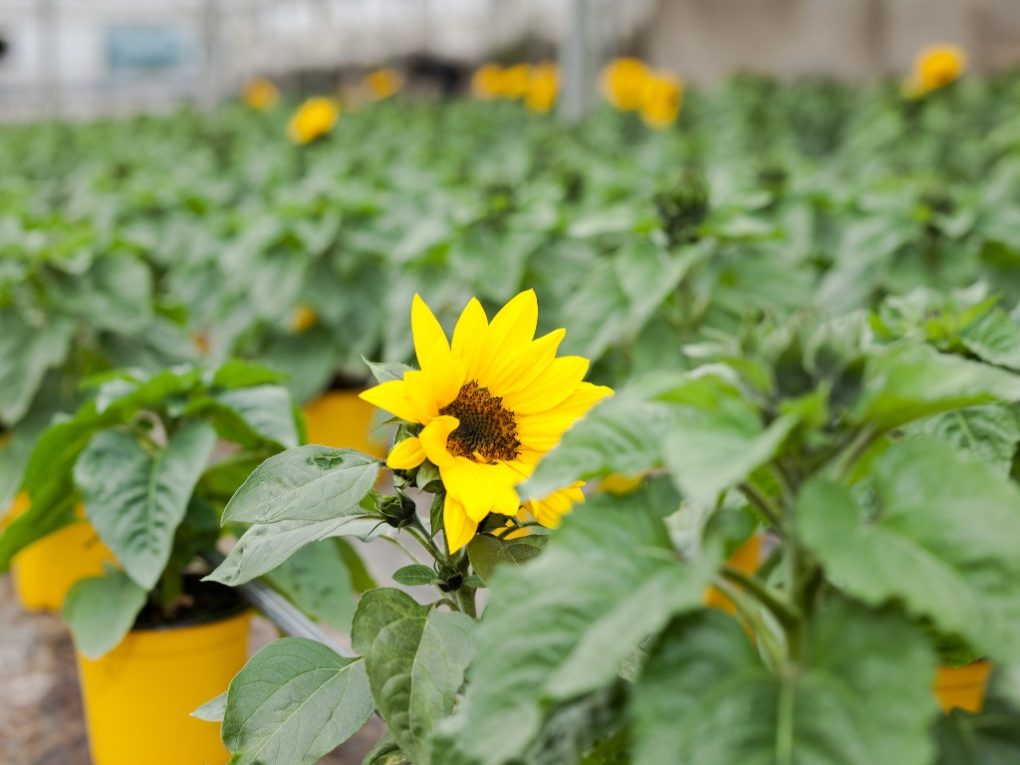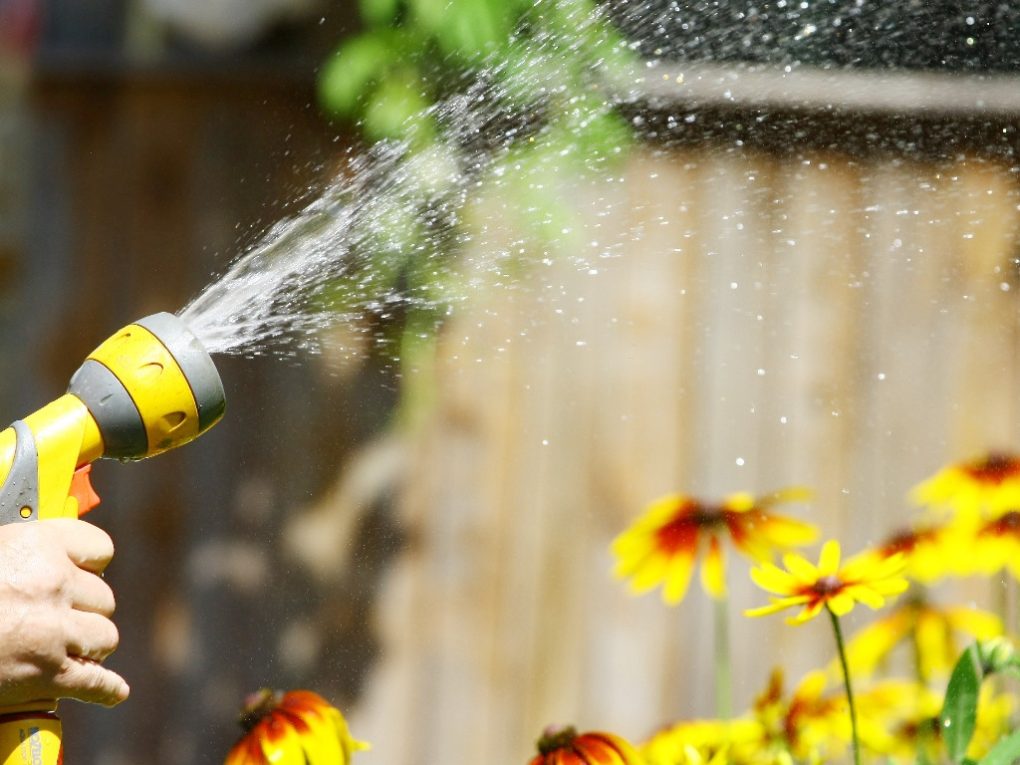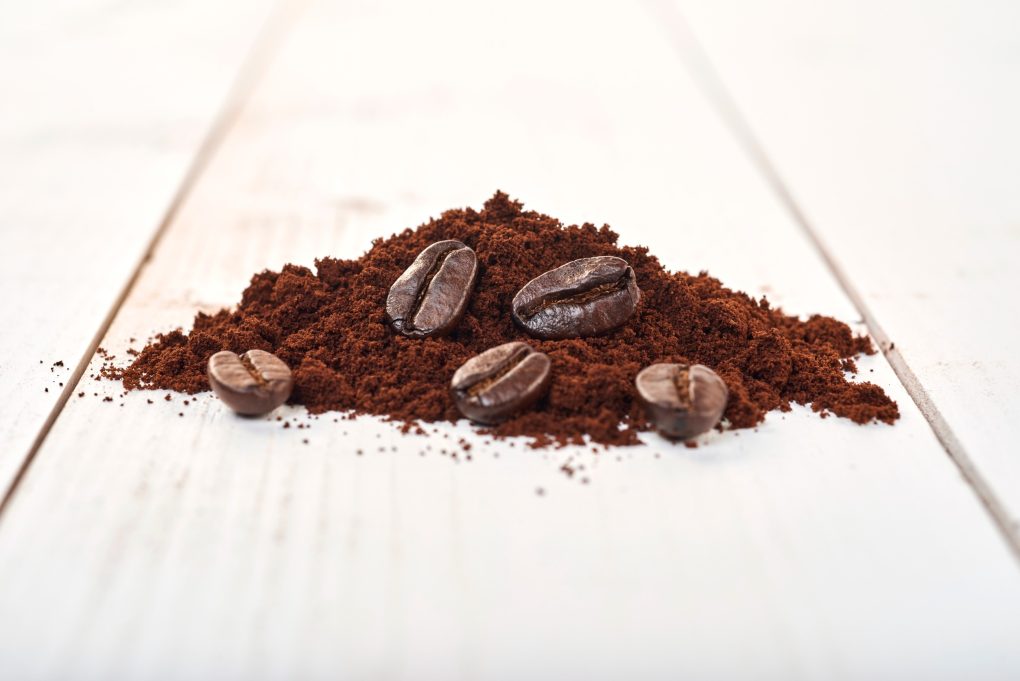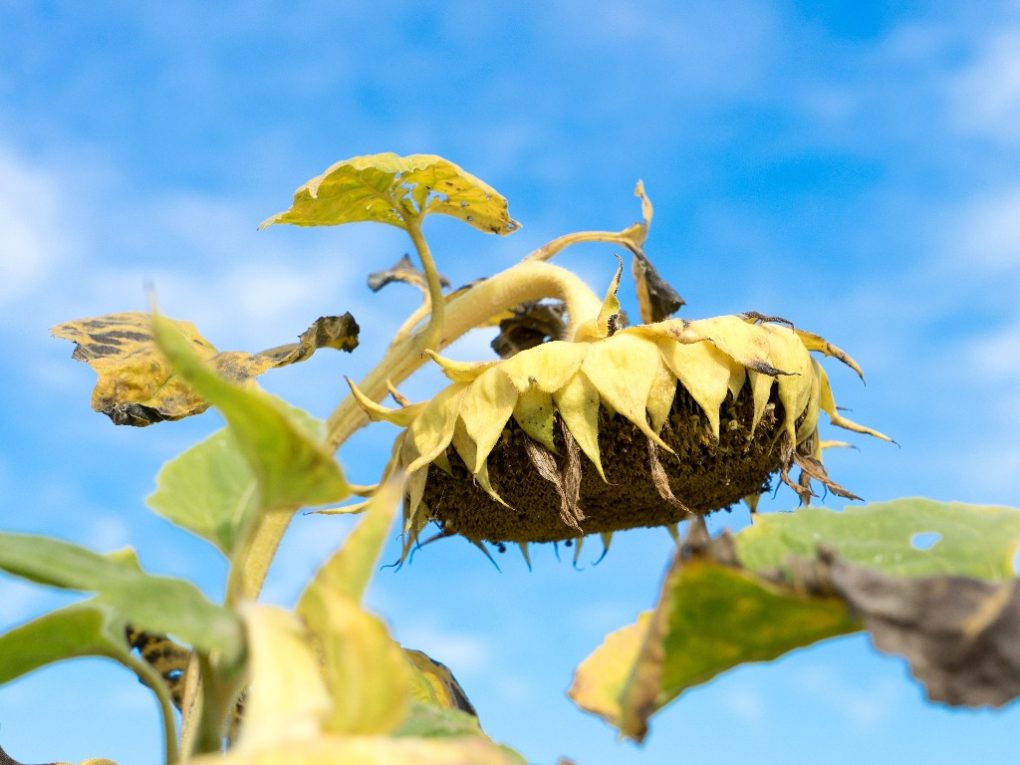Do Sunflowers Like Coffee Grounds: All About Sunflower and Coffee Grounds
Yes, sunflowers can benefit from adding coffee grounds to the soil, as they are a rich nitrogen source, an important nutrient for plant growth. Coffee grounds can also help improve soil structure and drainage, contributing to healthier plant growth. However, it’s important to use coffee grounds in moderation and to mix them thoroughly into the soil, as they can be acidic, and too much can lead to an imbalance in the soil pH.

Table of Contents
Tips to Use Coffee Grounds for Sunflower
Collect Coffee Grounds
To collect coffee grounds for your sunflowers, you can start by saving the used coffee grounds from your coffee maker. After brewing your coffee, scoop the used coffee grounds into a container or bucket, and store them until you’re ready to use them in your garden.
You can also ask your local coffee shop if they have any coffee grounds that they are willing to give away. For example, many coffee shops collect their used coffee grounds and offer them for free to gardeners and composters.
When collecting coffee grounds, only collect coffee free of additives or sweeteners. Avoid using coffee flavored or treated with chemicals, which can harm your plants. Additionally, collect coffee grounds in a clean container, and store them in a cool, dry place until you’re ready to use them.
Mix Coffee Grounds Into the Soil
- Choose a well-draining soil: Sunflowers prefer well-draining soil rich in organic matter. Before mixing in coffee grounds, ensure your soil is loose and friable and drains well.
- Add coffee grounds to the soil: Once you have prepared your soil, you can start mixing in the coffee grounds. Be sure to work the coffee grounds into the top few inches of soil, not damaging any plant roots. Aim for a 10-20% ratio of coffee grounds to soil.
- Water the soil: After adding the coffee grounds to the soil, be sure to water your sunflowers thoroughly. This will help ensure the coffee grounds’ nutrients are properly distributed throughout the soil.
- Monitor the soil pH: Coffee grounds are acidic, so if you have alkaline soil, adding coffee grounds can help to lower the pH. However, if your soil is already acidic, adding coffee grounds can make it even more acidic, harming your sunflowers. Test the pH of your soil periodically to ensure that it remains within the optimal range for sunflowers, which is between 6.0 and 7.5.
Water the Plants
Watering your sunflowers is an important part of their care. Sunflowers require regular watering to help them grow and produce healthy seeds. Here are some tips for watering your sunflowers:

- Water deeply: When you water your sunflowers, be sure to water deeply so that the water reaches the roots. Shallow watering can encourage the roots to grow close to the surface, making the plants more vulnerable to drought and other stresses.
- Water early in the day: Water your sunflowers early in the day, before the sun is strongest. This will give the plants ample time to absorb the water before the day’s heat sets in.
- Don’t overwater: While sunflowers require regular watering, it’s important not to overwater them. Overwatering can lead to root rot and other problems. A good rule of thumb is to water your sunflowers deeply once a week or more often if the soil is particularly dry.
- Monitor the soil moisture: Regularly check the soil’s moisture level by sticking your finger into the soil. If the top inch or two of soil is dry, it’s time to water your sunflowers. Hold off on watering for a day or two if the soil feels moist.
- Water at the base of the plant: When you water your sunflowers, water them at the base rather than overhead. Watering overhead can encourage fungal diseases and other problems.
Combine Coffee Grounds With Other Fertilizers
You can combine coffee grounds with other fertilizers to help nourish your sunflowers. Coffee grounds are high in nitrogen, an essential nutrient for plant growth, but they don’t contain all the other nutrients that plants need to thrive. Here are some tips for combining coffee grounds with other fertilizers:
- Choose your fertilizer: You can use any fertilizer suitable for sunflowers, such as a balanced fertilizer or one specifically formulated for flowering plants.
- Mix the coffee grounds: Mix the coffee grounds with the fertilizer in a bucket or container. Use a ratio of about 1:1, or adjust the ratio depending on your soil’s nutrient needs and fertilizer strength.
- Apply the fertilizer: Spread the fertilizer mixture around the base of the sunflowers, taking care not to cover the stems or leaves of the plants.
- Water the plants: Water the sunflowers after applying the fertilizer to help the nutrients penetrate the soil and reach the roots of the plants.
- Monitor plant growth: Pay attention to the growth of your sunflowers and adjust your fertilization schedule as needed. Be careful not to over-fertilize, as this can cause damage to the plants.
Things to Avoid When Using Coffee Grounds
When using coffee grounds in your garden, there are a few things to avoid to prevent damage to your plants and the environment:
- Please don’t use too much: Coffee grounds are high in nitrogen, according to HGTV, which can benefit plants, but too much of it can be harmful. Mix coffee grounds in moderation with other organic matter to balance the nutrient content.
- Please don’t use them on acid-loving plants: Coffee grounds are acidic and can lower the pH of the soil. Avoid using coffee grounds on acid-loving plants such as blueberries, azaleas, and rhododendrons, as it can make the soil too acidic to grow.
- Please don’t use them on plants that don’t like moisture: Coffee grounds retain moisture, which can be a problem for plants susceptible to root rot or fungal diseases. Avoid using coffee grounds on plants that prefer dry soil or those prone to fungal infections.
- Don’t use fresh coffee grounds: Fresh coffee grounds are acidic and can burn your plants. Let the coffee grounds dry out for a few days before using them in your garden.
- Don’t use coffee grounds from flavored or decaffeinated coffee: Flavored and decaffeinated coffee grounds may contain additives that can harm plants. Stick to using plain, unflavored coffee grounds for your garden.

Signs of Over-Fertilization With Coffee Grounds
Burned Foliage
Burned foliage is a common sign of over-fertilization with coffee grounds. Coffee grounds are high in nitrogen, a key nutrient plants need for healthy growth. However, too much nitrogen can cause leaf burn or scorching on your plants. It could signify over-fertilization if you notice brown, crispy edges on your plant’s leaves.
To avoid burning foliage, it’s important to use coffee grounds in moderation and mix them with other organic materials to balance the nitrogen content. You can also avoid applying coffee grounds directly to the foliage and instead work them into the soil around the base of the plant.
This will allow the nutrients to slowly release into the soil and be absorbed by the plant’s roots without causing any harm. If you notice burned foliage, stop using coffee grounds for a while and water your plants well to help flush out the excess nitrogen.
Stunted Growth
Stunted growth can also be a sign of over-fertilization with coffee grounds. Unfortunately, too much nitrogen in the soil can inhibit the plant’s ability to absorb other essential nutrients, like phosphorus and potassium, necessary for healthy growth.
To avoid stunted growth, it’s important to use coffee grounds in moderation and combine them with other organic fertilizers, such as compost or aged manure, which provide a balanced mix of nutrients.
You can also apply coffee grounds as a side dressing, which involves sprinkling the grounds around the base of the plant rather than mixing them into the soil. This will allow the plant to slowly absorb the nutrients as they decompose without being overwhelmed by a sudden nitrogen influx.
If you notice stunted growth in your plants, stop using coffee grounds for a while and focus on providing them with a balanced diet of nutrients. You may also need to water your plants more frequently to help flush out any excess nitrogen and other minerals inhibiting growth.
Yellowing Leaves
Yellowing leaves can also be a sign of over-fertilization with coffee grounds. When too much nitrogen is present in the soil, it can cause a condition known as nitrogen toxicity, leading to chlorophyll accumulation in the plant’s leaves. This can result in yellowing or browning of the leaves and other symptoms such as wilting or leaf drop.

To avoid yellowing leaves, it’s important to use coffee grounds in moderation and combine them with other organic fertilizers that provide a balanced mix of nutrients. For example, if you notice yellowing leaves in your plants, you may need to reduce the coffee grounds or stop using them altogether for a while. You may also need to water your plants more frequently to help flush out any excess nitrogen that may be causing the problem.
It’s worth noting that yellowing leaves can also be a sign of other problems, such as nutrient deficiencies or pests and diseases. If you need help determining what’s causing the problem, it’s a good idea to consult a gardening expert or take a soil test to determine if any other issues need to be addressed.
Reduced Fruit or Flower Production
Over-fertilization with coffee grounds can also reduce plant fruit or flower production. Excess nitrogen can cause the plant to focus on producing foliage rather than flowers or fruits.
To avoid reduced fruit or flower production, it’s important to use coffee grounds in moderation and combine them with other organic fertilizers that provide a balanced mix of nutrients. You can also adjust the number of coffee grounds you use based on the specific needs of your plants. For example, plants that require a lot of nitrogen, such as corn or tomatoes, may be able to tolerate more coffee grounds than plants that require less nitrogen, such as peppers or strawberries.
Benefits of Coffee Grounds for Sunflowers
- Increased nitrogen: Sunflowers require nitrogen for healthy growth, and coffee grounds are a rich source of this essential nutrient. Adding coffee grounds to the soil can help boost nitrogen levels and promote vigorous growth.
- Improved soil texture: Coffee grounds are rich in organic matter, which can help improve soil structure and water-holding capacity. This can be especially beneficial for sunflowers, which require well-draining soil that can hold moisture.
- Pest and disease control: Coffee grounds contain compounds that can help repel pests and inhibit the growth of certain fungi and bacteria. This can help protect sunflowers from common pests and diseases, such as slugs and mildew.
- Sustainability: Using coffee grounds as a fertilizer is a sustainable way to recycle waste and reduce environmental impact. Using a natural, organic fertilizer like coffee grounds can reduce your reliance on synthetic fertilizers and help promote a healthier ecosystem.
